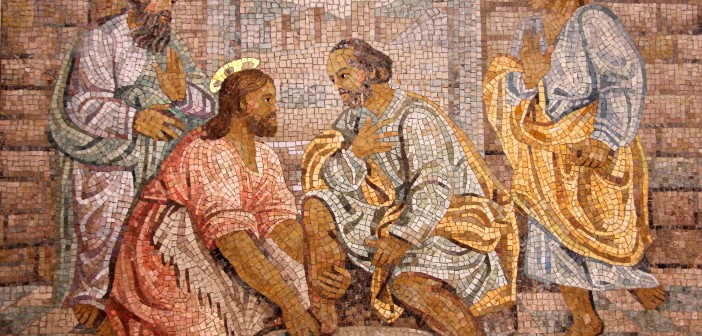Lovett H. Weems, Jr., writes that authority is not about status; it is about what God’s will is for each of us and how faithful we are in fulfilling God’s call.
In Luke 22:24 a dispute arises among the disciples as to “which one of them was to be regarded as the greatest.” This is the wrong question, but one asked all too often within the church. Isaiah speaks of authority resting upon the shoulders of the Messiah. Authority has to do with a responsibility, not a privilege.
Christian authority is not about our status in relationship to others. Rather, it is about what God’s will is for each of us and how faithful we are in fulfilling God’s call. Letty Russell speaks of the “power of purpose” in contrast to the “power of position.” God’s purpose, the church’s mission, and God’s vision for a particular congregation must guide all ministries among the ordained, staff, and laity.
Christian authority is always about the fulfillment of God’s vision. When leaders take their eyes off the larger vision, and focus instead on where they stand in relationship to others in a hierarchy, then energy is misdirected and leadership ceases to be faithful. Far too many church debates still revolve around “who is to be regarded as greatest among us.”
In congregations the debate may be around the needs of longstanding members versus the needs of newer members. Or the tension may center on the needs of current members versus the needs of those in the community not being reached. Or the issues may be framed in terms of age groups or competing ministry areas.
In denominational settings, the debates may center on the need for new congregations and the needs of existing congregations. Or maybe the debate involves urban versus suburban churches, or small membership versus large membership churches. In all these cases, and many more, the questions being asked are “Who will be greatest among us? Who will get special attention? Who will receive priority over others?”
We need to find better questions for leaders and congregations seeking to move the conversation away from “who is to be regarded as greatest among us” and toward the fulfillment of God’s purpose for the church and for all of our lives. Here are three suggested questions that get at some essential components of faithful and fruitful leadership.
- The question of Calling: What is your particular calling from God? What is it that God has called and gifted you to do? What is it that others are looking to you to do because of a particular assignment you have taken on as a part of the congregation?
- The question of Support: Do you have what you need to fulfill your calling? When the community of faith asks someone to fulfill a particular responsibility, it is fair to expect that necessary support will be in place for the person to accomplish the task.
- The question of Accountability: Are you being faithful in fulfilling your calling? If you are clear about your assignment and have the support you need to fulfill the task, the question of accountability then becomes appropriate.
These questions put the focus not on one’s status in relationship to others, but instead, on one’s relationship to God’s vision.
In this light, authority is not something to be avoided. Abuse of authority comes when authority becomes identified too personally and is separated from the larger call of God’s purpose. The possibility of abuse should never be a reason to avoid the true spiritual authority needed to serve God’s people faithfully.
We also come to see that all of us have authority in different ways based on the unique callings that God, the church, and our context place upon us. We come to see that proper authority is essential to carry out God’s vision for the church and the world.
In the marvelous wisdom of God, all of God’s servants may then come to experience power not as a fixed sum that must be distributed all so carefully. Instead, power will become an infinitely expandable sum as all become strong for their particular callings and, at the same time, make sure that all other colleagues are strong for their own callings.
Related Resources
- Power Is about Influence, Not Control Lovett H. Weems, Jr.
- Becoming a Spiritual Leader John R. Schol
- Church Leadership: Vision, Team, Culture, Integrity Revised Edition (Abingdon, 2010)







